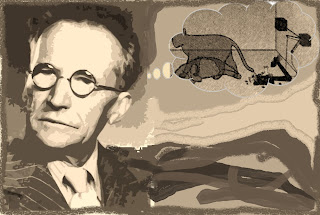Nowadays, it comes through email, text, social media, and yes sometimes just plain old word of mouth, the claims all seem serious and well researched, but often a simple check of a variety of sites on the Internet will help point you in the right direction - please note that I said several sites. If you get refuting evidence from only one source your no better off than when you started.
Recently, a friend of mine, stated that she was no longer drinking cold water with her meals, "because it's bad for you". I'd never heard of this, but knowing that there might be some new research, I merely decided to check it out before discussing it further. There are several references floating around the web and emails that espouse this new finding or that new finding on the subject of consuming cold water after a meal, the more outlandish ones are those that purport that it will cause cancer, or that it masks cardiac symptoms.
While I'll admit that my dentist scolds me for crunching on ice cubes, I couldn't fathom how the consumption of one of the most important building blocks of the human body could be dangerous. A simple quick check of the website, "Snopes.com" helps point you in a general direction of true, false or a little of both. I recommend this as your first step because, these are people who live to debunk or prove myths. (and trust me there are almost as many that they verify and validate as those they discredit) After finding that this "new research" has been circulating for the last six years or more, in various incarnations, I decided to continue my search to other related and credible health and diet expert sources. There are more positive affirmations to consume water in any form over any sort of warnings, additionally there is verifiable research and study on how consuming cold or ice water helps the body burn more calories (since calories are a measure of how much energy must be used to raise the temperature of water.)
The purpose of this article is not to address any one particular myth, but rather speak to the need of people to "Trust but Verify" before they spread the news. Listen with your ears and eyes open to catch all the details and your brain operating, to break it down and gauge your reaction. Certainly, if someone tells me that they just heard that there's a recall on all chicken on the area, I'm probably going to put down my sandwich until I have time to investigate. Starting with them, where did they hear it? What did they hear? Based on their answers I may resume my lunch or I may grab my smart phone or turn on the TV to see of there's corroborating accounts.
Why do we do this? Simple, we want to be the first to "break the news". Why? Certainly every person has their own motivation but more often than not it makes us the "person in the know" and ironically, it generally involves a topic we're not an expert in, so we like to have the inside scoop. Recently, while on a trip with my daughters, I was reading an account on the breeding of myths - Facebook - that said the great actor Morgan Freeman had died. I was so shocked, I immediately turned to my eldest and said "Hey, Morgan Freeman died"... being the savvy person I've taught her to be she said, "OMG (yes she actually said O-M-G) where'd you hear that?" as I began to tell her that I saw it on Faceb.... I suddenly stopped and said "hold on" and went on to do a web search for "Morgan Freeman Dead" and quickly found out that there was an unfounded rumer floating around of the actor's passing and that it had been quickly squashed (but not quick enough) by his agent and publicist. Needless to say I sheepishly recanted my erroneous statement and kicked myself for violating my own rule.
The fact is that with many claims they ebb and flow like the ocean tide.. today its good, tomorrow its bad, the day after its a miracle, and the day after that is a disaster... Thing of the things that we've been told to do or not do, eat and not eat in our life times... Its simple folks... If it has positive benefits it will probably also have negative ones.. everything in moderation... Food, Media, Technology, Excercise...
Look before you leap make sure that its water in the pool and not broken glass.
Sources:
"Does drinking ice water burn calories?" 21 January 2008. HowStuffWorks.com. 26 November 2012
Snopes.com - Medical Myths Drinking Cold Water
"Ronald Reagan." BrainyQuote.com. Xplore Inc, 2012. 26 November 2012. http://www.brainyquote.com/quotes/quotes/r/ronaldreag147717.html
Morgan Freeman Death Hoax Dismissed by His Representative

















